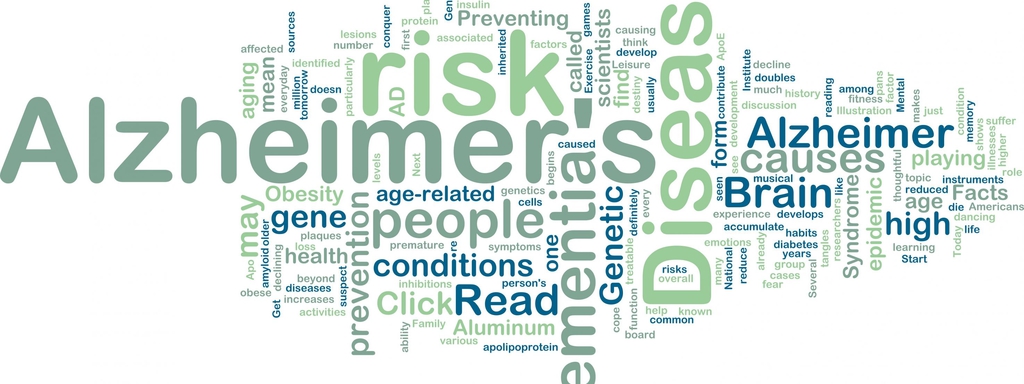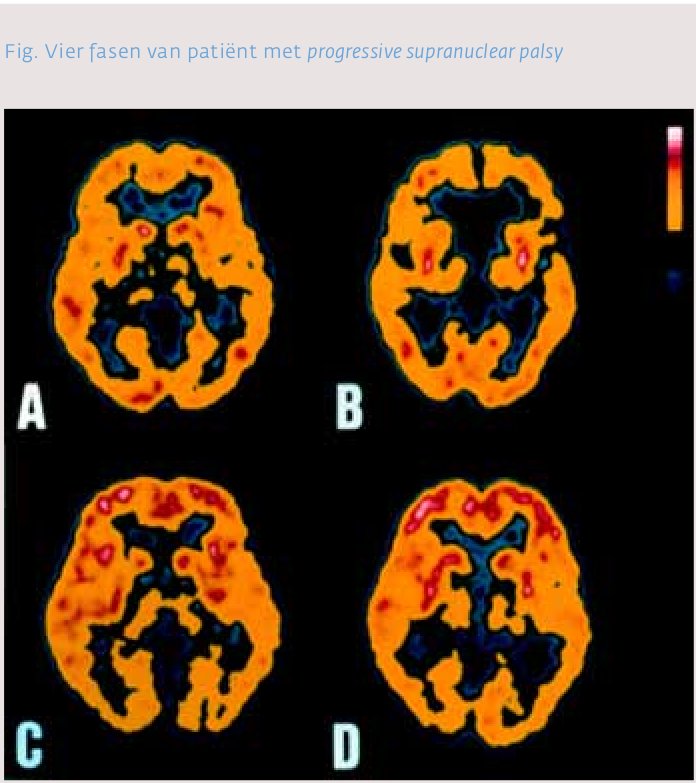
Neurodegeneratie is een ziekte van deze tijd: mensen worden ouder, maar spijtig genoeg zijn die toegevoegde jaren al te vaak verpest door ziekte en aftakeling. Niet alleen hart- en vaatziekten en kanker, maar ook dementie en neurodegeneratieve ziekten nemen epidemische vormen aan. Co-enzym Q10 (coQ10) is als krachtige antioxidant een ideale tegenspeler om de schade door vrije radicalen te voorkomen en te beperken. Maar er is tevens steeds meer bewijs dat coQ10 directe, neuroprotectieve eigenschappen heeft en dat het beschermt tegen neuronale schade veroorzaakt door ischemie, atherosclerose en toxische schade. En dat tekorten een grote rol spelen bij neurodegeneratie, met cognitieve achteruitgang als gevolg.
Beste bezoeker, u heeft geen toegang.
Enkel (web)abonnees hebben toegang tot tijdschriftartikelen. Het webabonnement is nog in de maak.
U kunt zich wel alvast (gratis) registreren en tal van andere webartikelen raadplegen!
Auteur
Trefwoorden:
Verschenen in
Referenties
1. Voordrachten en abstracts van de The sixt Conference of the International Coenzyme Q10 Association. Mei 2010
2. Littarru GP. Energy and Defense. Facts and perspectives on Coenzyme Q10 in biology and medecine. ISBN 88-86062-24-9
3. Crane FL. The evolution of coenzyme Q. Biofactors. 2008;32(1-4):5-11.
4. Littarru GP, Tiano L. Clinical aspects of coenzyme Q10: an update. Nutrition. 2010 Mar;26(3):250-4.
5. Quinzii CM, Hirano M. Coenzyme Q and mitochondrial disease. Rev Disabil Res Rev. 2010 Jun;16(2):183-8.
6. Quinzii CM, López LC, Naini A, DiMauro S, Hirano M. Human CoQ10 deficiencies. Biofactors. 2008;32(1-4):113-8.
7. Di Giovanni S et al. Coenzyme Q10 reverses pathological phenotype and reduces apoptosis in familial CoQ10 deficiency. Neurology. 2001 Aug 14;57(3):515-8.
8. Gempel K et al. The myopathic form of coenzyme Q10 deficiency is caused by mutations in the electron-transferring-flavoprotein dehydrogenase (ETFDH) gene. Brain. 2007 Aug;130(Pt 8):2037-44.
9. Haas RH.The evidence basis for coenzyme Q therapy in oxidative phosphorylation disease. Mitochondrion. 2007 Jun;7 Suppl:S136-45.
10. MusumecinO et al. Familial cerebellar ataxia with muscle coenzyme Q10 deficiency. Neurology. 2001 Apr 10;56(7):849-55.
11. Spindler M, Beal MF, Henchcliffe C. Coenzyme Q10 effects in neurodegenerative disease. Neuropsychiatr Dis Treat. 2009; 5: 597–610.
12. Young AJ, Johnson S, Steffens DC, Doraiswamy PM. Coenzyme Q10: a review of its promise as a neuroprotectant. CNS Spectr. 2007 Jan;12(1):62-8.
13. Galpern WR, Cudkowicz ME. Coenzyme Q treatment of neurodegenerative diseases of aging. Mitochondrion. 2007 Jun;7 Suppl:S146-53.
14. Beal MF. Coenzyme Q10 as a possible treatment for neurodegenerative diseases. Free Radic Res. 2002 Apr;36(4):455-60.
15. Beal MF. Coenzyme Q10 administration and its potential for treatment of neurodegenerative diseases. Biofactors. 1999;9(2-4):261-6.
16. Dhanasekaran M, et al. The emerging role of CoQ10 in aging, neurodegeneration, cardiovascular disease, cancer and diabetes. Curr Neurovasc Res. 2005 Dec;2(5):447-59.
17. Facecchia K et al. Oxidative Toxicity in Neurodegenerative Diseases: Role of Mitochondrial Dysfunction and Therapeutic Strategies. J Toxicol. 2011; 2011: 683728.
18. Orsucci D, Mancuso M, Ienco EC, Logerfo A, Siciliano G. Targeting Mitochondrial Dysfunction and Neurodegeneration by Means of Coenzyme Q10 and its Analogues. Curr Med Chem. 2011 Aug 9. [Epub ahead of print]
19. Russell H. Swerdlow. Mitochondrial Medicine and the Neurodegenerative Mitochondriopathies. Pharmaceuticals (Basel). 2009 December 3; 2(3): 150–167.
20. Kidd PM. Neurodegeneration from mitochondrial insufficiency: nutrients, stem cells, growth factors, and prospects for brain rebuilding using integrative management. Altern Med Rev. 2005 Dec;10(4):268-93.
21. Galvin JE, Tarawneh R. Potential future neuroprotective Therapies for nNeurodegenerative Disorders and stroke. Clin Geriatr Med. 2010 February; 26(1): 125–147
22. Young AJ, Johnson S, Steffens DC, Doraiswamy PM. Coenzyme Q10: a review of its promise as a neuroprotectant. CNS Spectr. 2007 Jan;12(1):62-8.
23. Tarnopolsky MA, Beal MF. Potential for creatine and other therapies targeting cellular energy dysfunction in neurological disorders. Ann Neurol. 2001 May;49(5):561-74.
24. Virmani A, Gaetani F, Binienda Z. Effects of metabolic modifiers such as carnitines, coenzyme Q10, and PUFAs against different forms of neurotoxic insults: metabolic inhibitors, MPTP, and methamphetamine. Ann N Y Acad Sci. 2005 Aug;1053:183-91.
25. Rozen TD, Oshinksy ML, Gebeline CA, et al. Open label trial of coenzyme Q10 as a migraine preventive. Cephalgia. 2002 Mar;22(2):137-41.
26. Leuner K et al. Mitochondrial dysfunction: the first domino in brain aging and Alzheimer's disease? Antioxid Redox Signal. 2007 Oct;9(10):1659-75.
27. Müller WE, Eckert A, Kurz C, Eckert GP, Leuner K. Mitochondrial dysfunction: common final pathway in brain aging and Alzheimer's disease--therapeutic aspects. Mol Neurobiol. 2010 Jun;41(2-3):159-71.
28. Hauptmann S et al. Mitochondrial dysfunction: an early event in Alzheimer pathology accumulates with age in AD transgenic mice. Neurobiol Aging. 2009 Oct;30(10):1574-86.
29. Isobe C, Abe T, Terayama Y. Increase in the oxidized/total coenzyme Q-10 ratio in the cerebrospinal fluid of Alzheimer's disease patients. Dement Geriatr Cogn Disord. 2009;28(5):449-54.
30. Isobe C, Abe T, Terayama Y. Levels of reduced and oxidized coenzyme Q-10 and 8-hydroxy-2'-deoxyguanosine in the CSF of patients with Alzheimer's disease demonstrate that mitochondrial oxidative damage and/or oxidative DNA damage contributes to the neurodegenerative process. J Neurol. 2010 Mar;257(3):399-404.
31. Wadsworth TL et al. Evaluation of coenzyme Q as an antioxidant strategy for Alzheimer's disease. J Alzheimers Dis. 2008 Jun;14(2):225-34. Neurobiol Aging. 2009 Oct;30(10):1574-86.
32. Storch A et al. Randomized, double-blind, placebo-controlled trial on symptomatic effects of coenzyme Q(10) in Parkinson disease. Arch Neurol. 2007 Jul;64(7):938-44.
33. Parkinson Study Group. Effects of coenzyme Q10 in early Parkinson disease: evidence of slowing of the functional decline. Arch Neurol. 2002 Oct;59(10):1541-50.
34. Kooncumchoo P et al. Coenzyme Q(10) provides neuroprotection in iron-induced apoptosis in dopaminergic neurons. J Mol Neurosci. 2006;28(2):125-41.
35. Ross CA, Shoulson I. Huntington disease: pathogenesis, biomarkers, and approaches to experimental therapeutics. Parkinsonism Relat Disord. 2009 Dec;15 Suppl 3:S135-8.
36. Sohmiya M et al. An increase of oxidized coenzyme Q-10 occurs in the plasma of sporadic ALS patients. J Neurol Sci. 2005 Jan 15;228(1):49-53.
37. Murata T, Ohtsuka C, Terayama Y. Increased mitochondrial oxidative damage in patients with sporadic amyotrophic lateral sclerosis. Neurol Sci. 2008 Apr 15;267(1-2):66-9.
38. Siciliano G et al. Clinical trials for neuroprotection in ALS. CNS Neurol Disord Drug Targets. 2010 Jul;9(3):305-13.
39. Ferrante KL et al. Tolerance of high-dose (3,000 mg/day) coenzyme Q10 in ALS. Neurology. 2005 Dec 13;65(11):1834-6.
40. Patel BP, Hamadeh MJ. Nutritional and exercise-based interventions in the treatment of amyotrophic lateral sclerosis. Clin Nutr. 2009 Dec;28(6):604-17.
41. Stamelou M et al. Short-term effects of coenzyme Q10 in progressive supranuclear palsy: a randomized, placebo-controlled trial. Mov Disord. 2008 May 15;23(7):942-9.
42. Höglinger GU, Stamelou M et al. In vivo evidence for cerebral depletion in high-energy phosphates in progressive supranuclear palsy. J Cereb Blood Flow Metab. 2009 Apr;29(4):861-70.
43. Folkers K, Simonsen R. Two successful double-blind trials with coenzyme Q10 (vitamin Q10) on muscular dystrophies and neurogenic atrophies. Biochim Biophys Acta. 1995 May 24;1271(1):281-6.
44. Mancuso M, Orsucci D, Volpi L, Calsolaro V, Siciliano G. Coenzyme Q10 in neuromuscular and neurodegenerative disorders. Curr Drug Targets. 2010 Jan;11(1):111-21.
45. Artuch R, Salviati L, Jackson S, Hirano M, Navas P. Coenzyme Q10 deficiencies in neuromuscular diseases. Adv Exp Med Biol. 2009;652:117-28.
46. Horvath R et al. Coenzyme Q10 deficiency and isolated myopathy. Neurology. 2006 Jan 24;66(2):253-5.
47. Tedeschi D et al. Potential involvement of ubiquinone in myotonic dystrophy pathophysiology: new diagnostic approaches for new rationale therapeutics. Neurol Sci. 2000;21(5 Suppl):S979-80.
48. Ihara Y et al. Free radicals, lipid peroxides and antioxidants in blood of patients with myotonic dystrophy. J Neurol. 1995 Feb;242(3):119-22.
49. Spurney CF et al. CINRG pilot trial of coenzyme Q10 in steroid-treated Duchenne muscular dystrophy. Muscle nerve. 2011 Aug;44(2):174-8.
50. Siciliano G et al. Coenzyme Q10, exercise lactate and CTG trinucleotide expansion in myotonic dystrophy. Brain Res Bull. 2001 Oct-Nov 1;56(3-4):405-10.
51. Tedeschi D et al. Potential involvement of ubiquinone in myotonic dystrophy pathophysiology: new diagnostic approaches for new rationale therapeutics. Neurol Sci. 2000;21(5 Suppl):S979-80.
52. Siciliano G et al. Coenzyme Q10, exercise lactate and CTG trinucleotide expansion in myotonic dystrophy. Brain Res Bull. 2001 Oct-Nov 1;56(3-4):405-10.
53. Folkers K, Simonsen R. Two successful double-blind trials with coenzyme Q10 (vitamin Q10) on muscular dystrophies and neurogenic atrophies. Biochim Biophys Acta. 1995 May 24;1271(1):281-6.
54. Nicolson GL, Conklin KA. Reversing mitochondrial dysfunction, fatigue and the adverse effects of chemotherapy of metastatic disease by molecular replacement therapy. Clin Exp Metastasis. 2008;25(2):161-9.
55. Nicolson GL. Lipid replacement therapy: a nutraceutical approach for reducing cancer-associated fatigue and the adverse effects of cancer therapy while restoring mitochondrial function. Cancer Metastasis Rev. 2010 Sep;29(3):543-52.
56. Folkers K, OsterborgA, NylanderM et al. Activites of vitamin Q10 in animal models and a serious deficiency in patients with cancer. Biochem Biophys Res Commun. 1997; 19;234(2):296-9.
[kader]
Golomb BA, Kwon EK, Koperski S, Evans MA. Amyotrophic lateral sclerosis-like conditions in possible association with cholesterol-lowering drugs: an analysis of patient reports to the University of California, San Diego (UCSD) Statin Effects Study. Drug Saf. 2009;32(8):649-61.
Edwards IR, Star K, Kiuru A. Statins, neuromuscular degenerative disease and an amyotrophic lateral sclerosis-like syndrome: an analysis of individual case safety reports from vigibase. Drug Saf. 2007;30(6):515-25.
Jeppesen U, Gaist D, Smith T, Sindrup SH. Statins and peripheral neuropathy. Eur J Clin Pharmacol. 1999 Jan;54(11):835-8.
Chong PH, Boskovich A, Stevkovic N, Bartt RE. Statin-associated peripheral neuropathy: review of the literature. Pharmacotherapy. 2004 Sep;24(9):1194-203.
Corrao G et al. Lipid lowering drugs prescription and the risk of peripheral neuropathy: an exploratory case-control study using automated databases. Epidemiol Community Health. 2004 Dec;58(12):1047-51.
Backes JM, Howard PA. Association of HMG-CoA reductase inhibitors with neuropathy. Ann Pharmacother. 2003 Feb;37(2):274-8.
Joy T, Hegele RA. Statins: a narrative review. Ann Int Med 2009;150:858-868.
Hippisley-Cox J, Coupland C. Unintended effects of statins in men and women in England and Wales: population based cohort study using the QResearch database. BMJ. 2010 May 20;340:c2197

